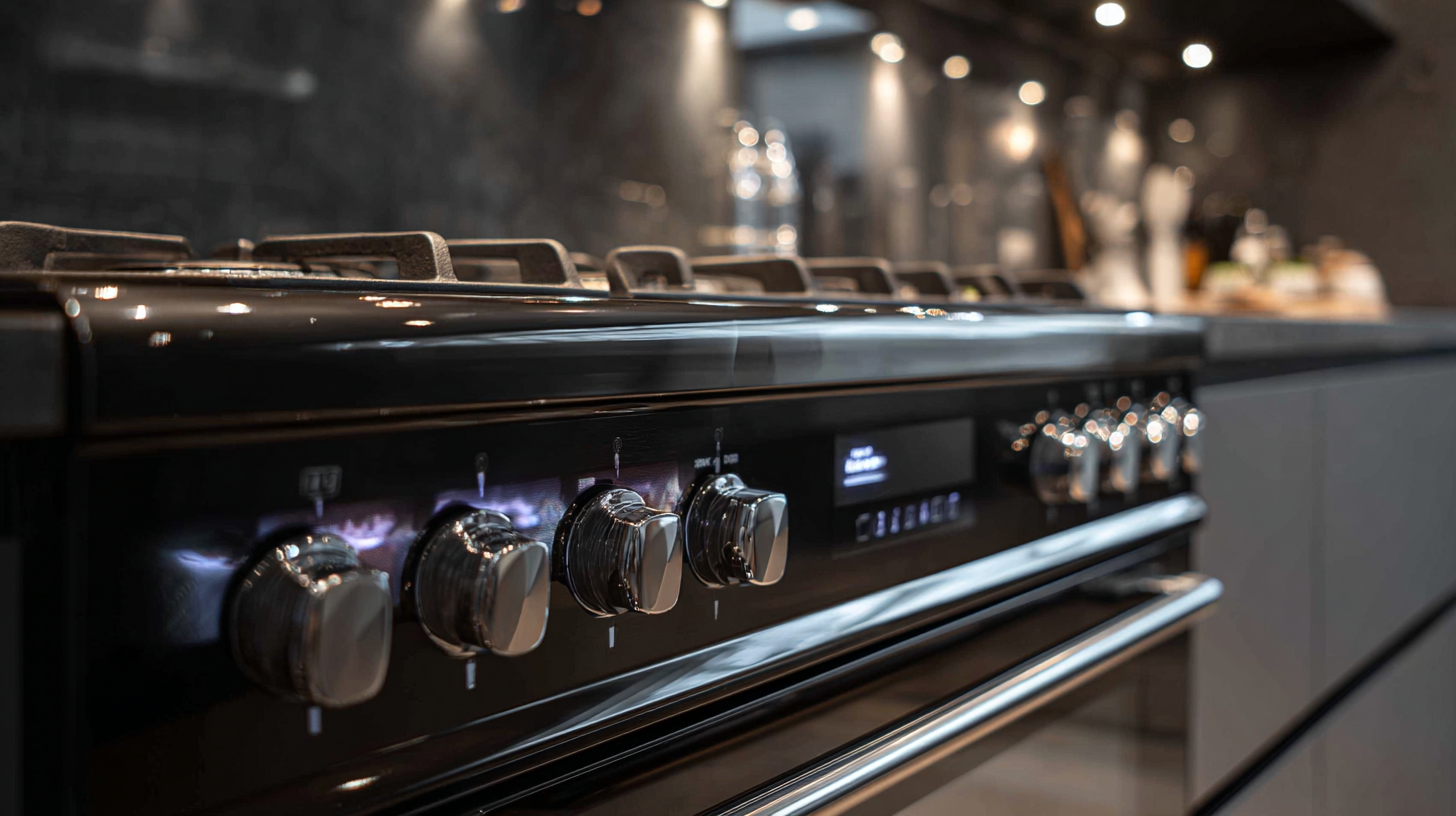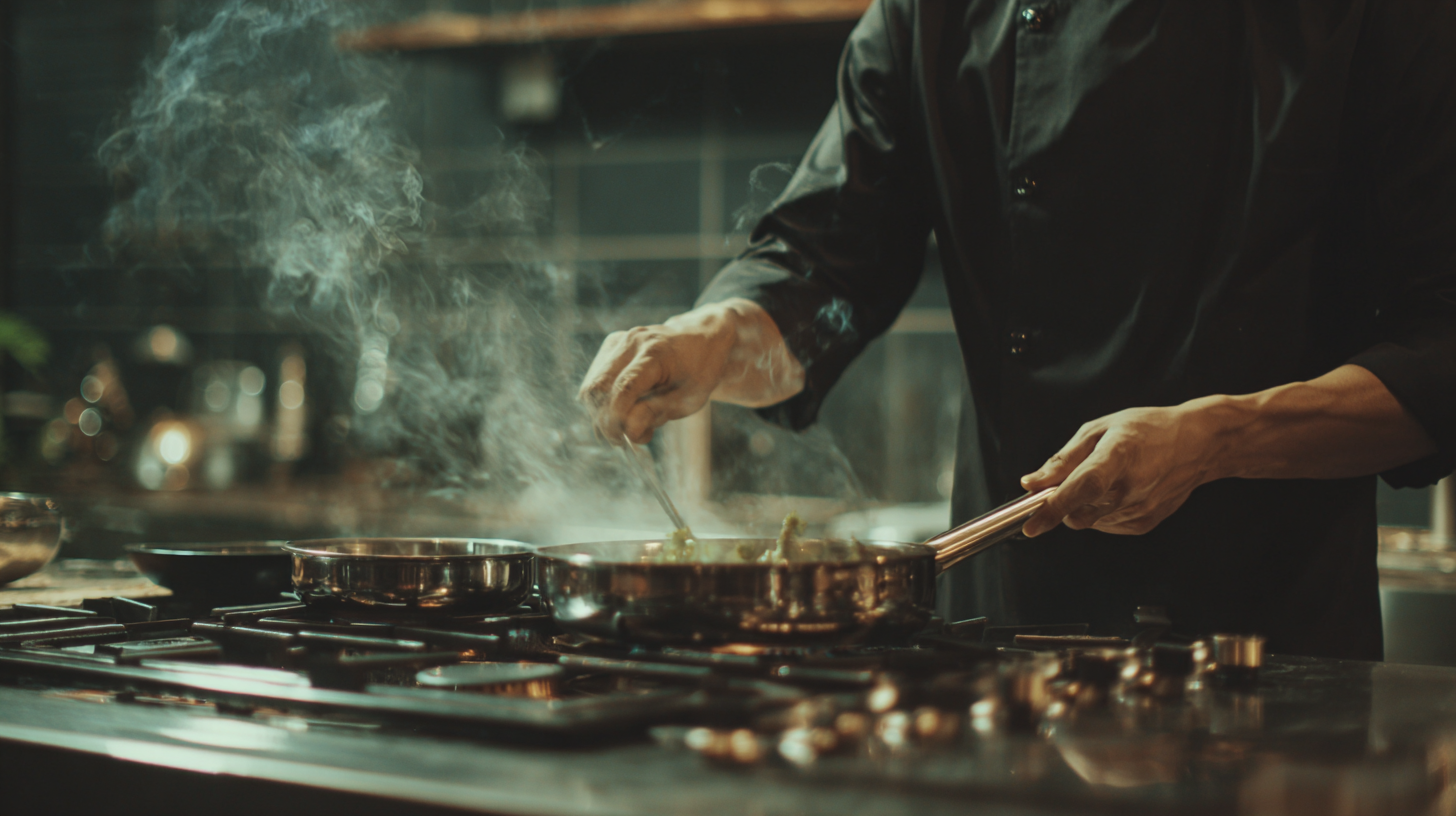Quality first, innovative service
Leave Your Message
-
Phone
-
E-mail
-
Whatsapp
-
Whatsapp

-
Wechat17786531544
-
Wechat

Quality first, innovative service


The culinary landscape is undergoing a significant transformation, driven by the advent of smart technology in cooking ranges. According to a recent market analysis by Grand View Research, the global smart kitchen appliance market is projected to reach $38 billion by 2025, reflecting an increasing consumer demand for efficiency and connectivity in culinary practices. This shift is particularly evident in cooking ranges, where innovations such as remote control capabilities, integrated sensors, and AI-driven cooking assistants are redefining the kitchen experience.

With the growing emphasis on energy efficiency and convenience, the modern cooking range is not just a tool for meal preparation but a central hub of a connected kitchen. As homeowners seek to enhance their culinary skills and streamline their cooking processes, understanding these top five innovations in cooking ranges becomes essential for anyone looking to elevate their culinary practices.
Smart cooking ranges are revolutionizing culinary practices by enhancing precision and efficiency in the kitchen. The emergence of advanced cooking technology, like intelligent stir-fry robots capable of preparing a thousand dishes with quality rivaling that of professional chefs, has raised intriguing questions about the future of traditional cooking. These innovations not only streamline the cooking process but also ensure that meals are freshly prepared without relying on pre-cooked ingredients.
As high-end kitchen appliances gain popularity, the integration of smart features has become a focal point in culinary trends. With an increasing shift toward automation and intelligent systems, consumers are more drawn to products that promise improved efficiency and better cooking outcomes. This evolution in kitchen technology indicates a significant transformation in how we approach cooking, potentially redefining the roles of chefs and home cooks in the culinary landscape.
The Internet of Things (IoT) is revolutionizing the culinary landscape by seamlessly connecting cooking ranges to the digital world. According to a report from MarketsandMarkets, the smart kitchen appliances market is projected to grow from $20 billion in 2020 to over $40 billion by 2025, driven largely by consumer demand for convenience, energy efficiency, and enhanced cooking experiences. Modern cooking ranges equipped with IoT technology allow home chefs to monitor and control their appliances remotely, making it possible to set the perfect temperature or turn off the oven via smartphone apps.
Tips: To maximize your cooking efficiency, consider investing in a smart range that integrates with your home’s IoT infrastructure. Features such as recipe integration and real-time temperature adjustments can minimize the risk of overcooking and ensure your dishes are executed to perfection.
Moreover, these advancements are not just for convenience; they also contribute to sustainability. A report by the International Energy Agency (IEA) reveals that smart appliances can reduce energy consumption by as much as 40%. By utilizing these innovative ranges, consumers can not only enjoy enhanced culinary capabilities but also play a part in reducing their carbon footprint.
Tips: Regularly update your smart appliance software to take full advantage of the newest features, including energy-saving settings and recipe enhancements, ensuring you stay ahead in sustainable cooking practices.
The modern kitchen is undergoing a transformation driven by smart technology, particularly in cooking ranges that prioritize energy efficiency. Traditional cooking methods often lead to substantial energy wastage, but innovative smart cooking ranges are designed to optimize energy consumption. These devices employ advanced sensors and adaptive cooking algorithms that adjust heating levels based on the type of food being prepared and the desired outcome. This not only reduces electricity bills for households but also minimizes the environmental impact associated with excessive energy use.

Furthermore, the integration of smart features, such as remote monitoring and scheduling, empowers users to control their cooking processes more efficiently. Users can preheat their ovens or adjust cooking temperatures from their smartphones, ensuring that energy is utilized only when necessary. This convenience encourages a more sustainable approach to cooking, as consumers can better plan their meals and reduce food waste. As smart technology continues to evolve, the emphasis on energy efficiency in cooking ranges will likely play a pivotal role in shaping culinary practices and promoting a greener future.
The integration of artificial intelligence (AI) into cooking ranges is reshaping culinary practices and personalizing cooking experiences like never before. According to the latest report by Markets and Markets, the global smart kitchen appliance market is projected to reach $38.71 billion by 2027, driven largely by innovations in AI technology. Smart cooking ranges equipped with AI can learn an individual's cooking habits, preferences, and dietary restrictions. For instance, they can suggest recipes based on available ingredients and automate cooking times and temperatures, resulting in perfectly prepared meals with minimal effort.
Furthermore, AI-driven cooking ranges can adapt to users' feedback and refine their suggestions over time. A survey by Deloitte found that nearly 60% of consumers are interested in AI-enabled devices that can provide personalized cooking advice. This technology not only enhances the user experience but also contributes to minimizing food waste, as these innovative ranges help users efficiently utilize ingredients. By harnessing AI to analyze cooking patterns and preferences, smart cooking ranges are not just tools of convenience but essential collaborators in the modern kitchen.

The culinary landscape in 2023 is witnessing transformative growth driven by shifting consumer preferences and the integration of smart technology in cooking ranges. With the plant-based meat market in Hong Kong projected to expand significantly, growing from 2.0 million tons in 2024 to 6.12 million tons by 2032, there's a clear indication that health-conscious consumers are seeking innovative food solutions. This shift not only reflects a rising demand for sustainability but also an increasing openness to incorporating high-tech solutions in culinary practices.
Concurrently, the spice market is experiencing robust growth, fueled by a global annual increase in demand exceeding 8%. The popularity of gourmet and artisanal products, especially handcrafted sauces and specialty chili sauces, highlights consumers' desire for flavor and quality in their cooking experiences. This trend is echoed in the restaurant table market, forecasted to grow at a CAGR of approximately 6.2% from 2026 to 2033, as innovative designs incorporating smart technology significantly enhance customer experiences. The integration of IoT devices into dining and cooking setups is set to redefine culinary practices, making future kitchens more connected and efficient.
